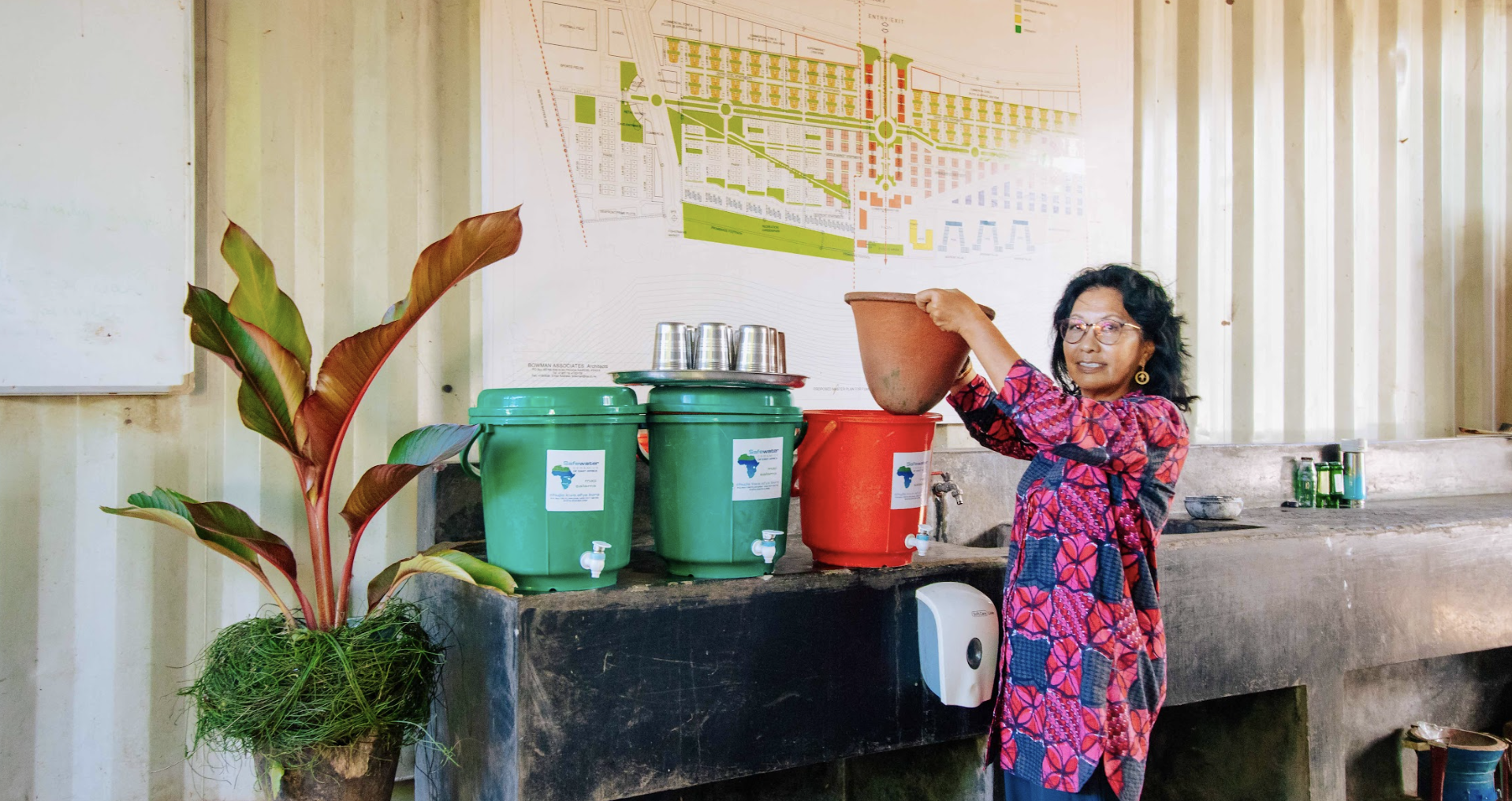
Bernadette Kirsch shares smart ideas for an eco-friendly lifestyle.
Clay pots are the clue to clean water for your home.
How to make your own fresh water in Zanzibar at almost zero costs, explains our green expert Bernadette Kirsch, Fumba Town’s head of permaculture.
Water is an issue in many ways: pollution, environment, urban development and even government policies all get in the way of our prescribed dose of at least one litre fresh drinking water a day. Half of the Zanzibar population still has no access to piped fresh drinking water. 60 percent water loss occurs because of out-dated pipes.
When Fumba Town was started in 2015, an independent water supply for the new town was established with the neighbouring villages Nyamanzi and Dimani also benefiting from it. Starting in September this year, Fumba Town will be additionally connected to the municipal lines of Zanzibar Water Authority (ZAWA) who will then have to conduct regular quality tests. Good news: The water price is expected to go down. All water in Zanzibar, whether private or public, comes from boreholes.
Whatever the source, to be on the safe side, filtering drinking water with clay filters is a good idea for your home consumption - and a perfect way to replace buying bottled water. We all use far too much bottled water. Entire aisles at the grocery store are full of it. But while most people know that bottled water is not a good idea for many reasons (see box), we continue to purchase it anyway.
Clay is clean!
The use of sand filtration can be traced back to the ancient Egyptians. In 1804, the first clay pot filters were used to purify the water supply in Paisley, Scotland. The ceramic water filtration system has been cited by the United Nations’ Appropriate Technology Handbook, and hundreds of thousands of filters have been distributed worldwide by organisations such as the Red Cross and Red Crescent, Doctors Without Borders and Oxfam .
For use in Zanzibar I recommend “Maji Salama'' fabricated by Safe Water Ceramics East Africa (SWCEA). We have used this system for more than five years at the Permaculture Design Company (PDC) and the Kwetu Kwenu kiosk in Fumba Town.
How do clay filters work?
SWCEA is a small family-run business in Arusha; their ceramic water filter has proven to remove 99% of all known pathogens, including those that cause cholera, dysentery, and stomach upsets. A combination of clay, sawdust and colloidal silver is used to form the initial shape of the hand-made pot. Colloidal silver is the key ingredient (also expensive) that kills the bacteria. The pot is burned at 900 degrees in a kiln for about 24 hours, followed by a cooling and drying process over several days. Regular tests, conducted at a local clinic, establish if the water flow is as expected (2-4 litres per hour) and bacteria-free.
Using the clay filter at home
It is simple and easy to use. Each ceramic filter comes with a food grade plastic bucket with a cover and tap. It can filter four litres per hour and 36 litres per day. A brush for scrubbing and cleaning the filter every three months and a cleaning instruction is included. The filters have a life span of five years.
A slight disadvantage is the slow process of filtering. I have made it a habit to let the filter run all the time and store the water in glass bottles in the fridge and outside. For the first two times that we ran the filter it had a clayey taste. Thereafter, it tasted fresh, as charcoal produced from the burned sawdust restored natural water taste. To pep up the taste, I often add a slice of lemon, mint or lemongrass.